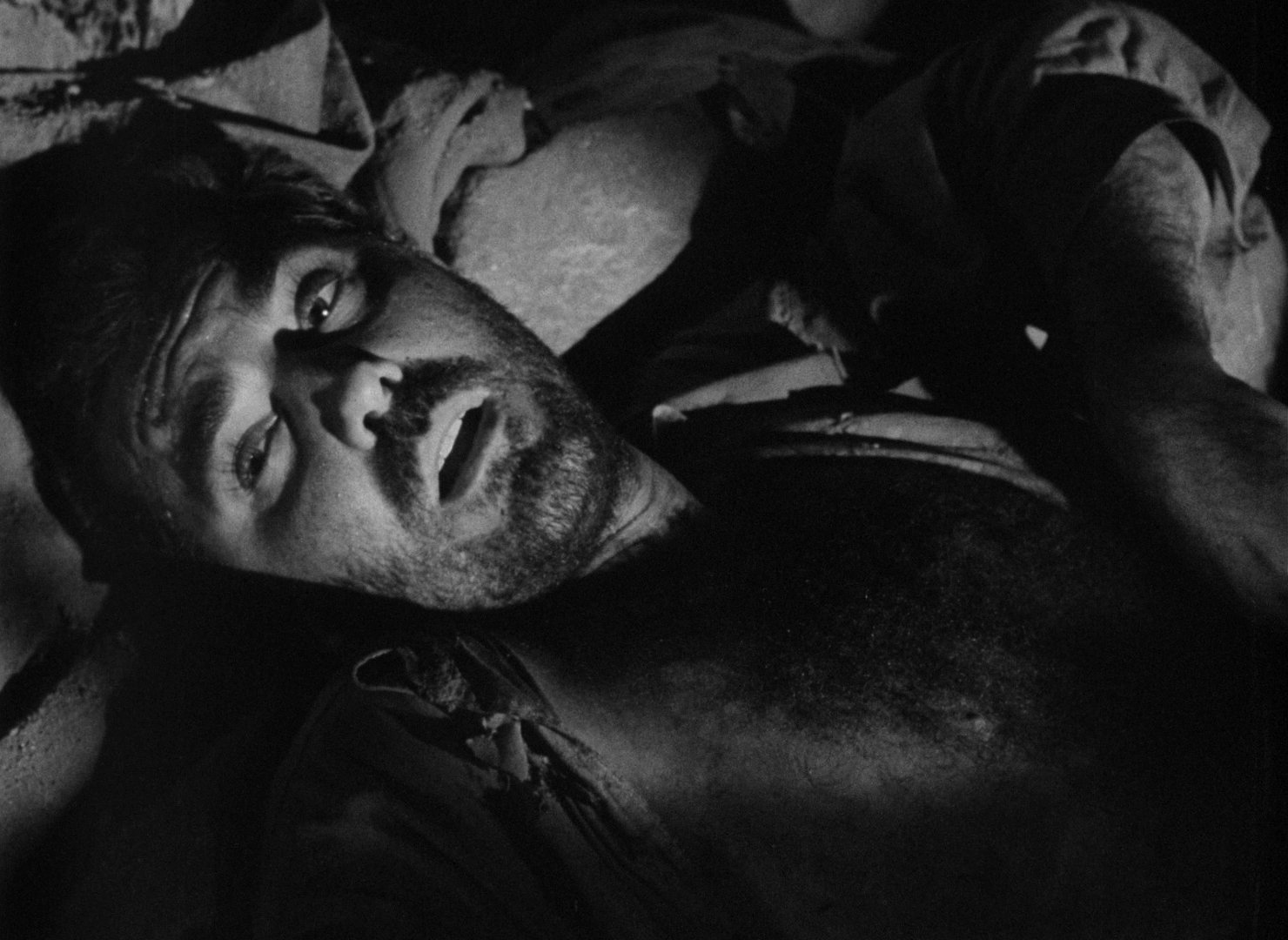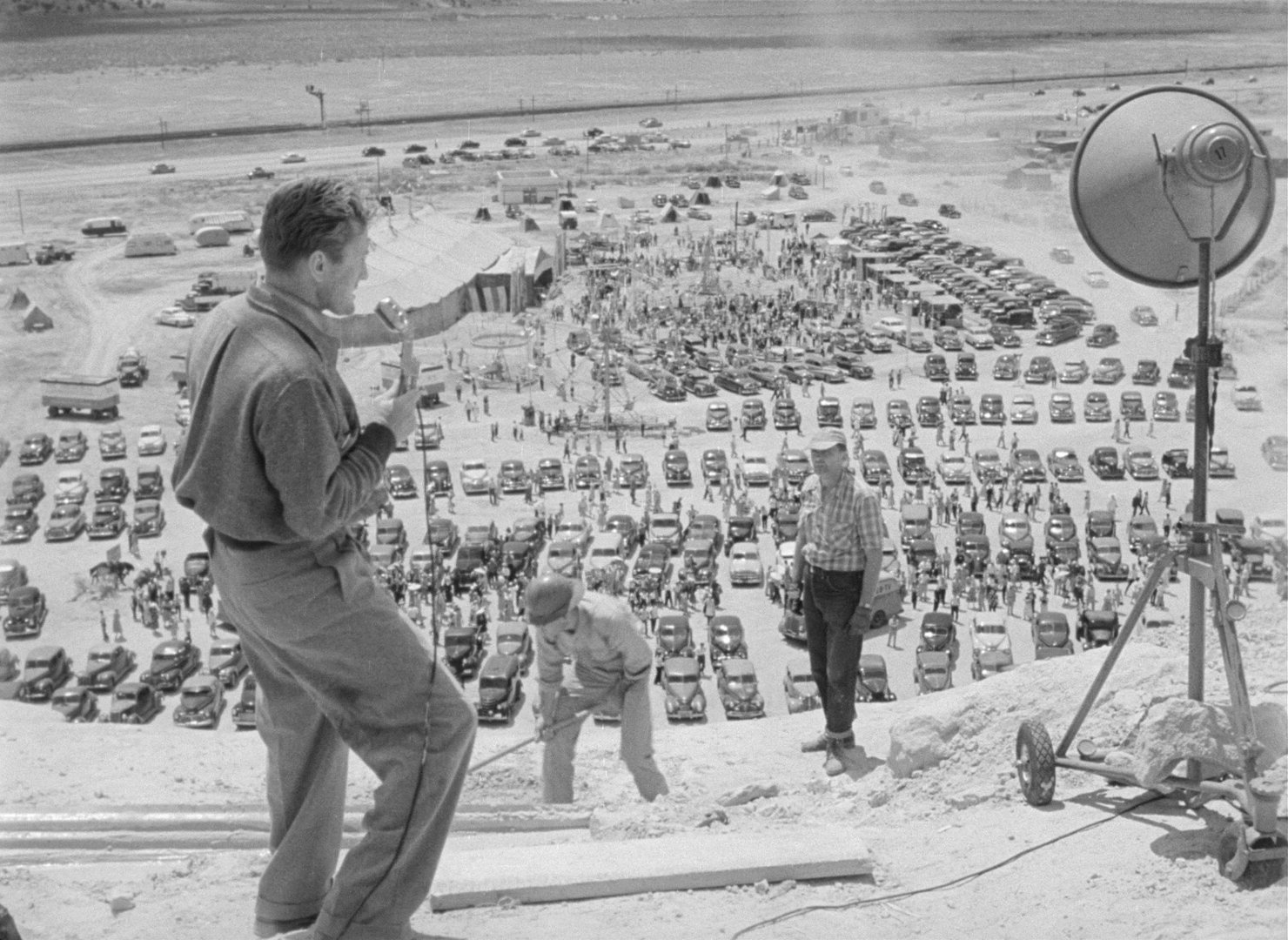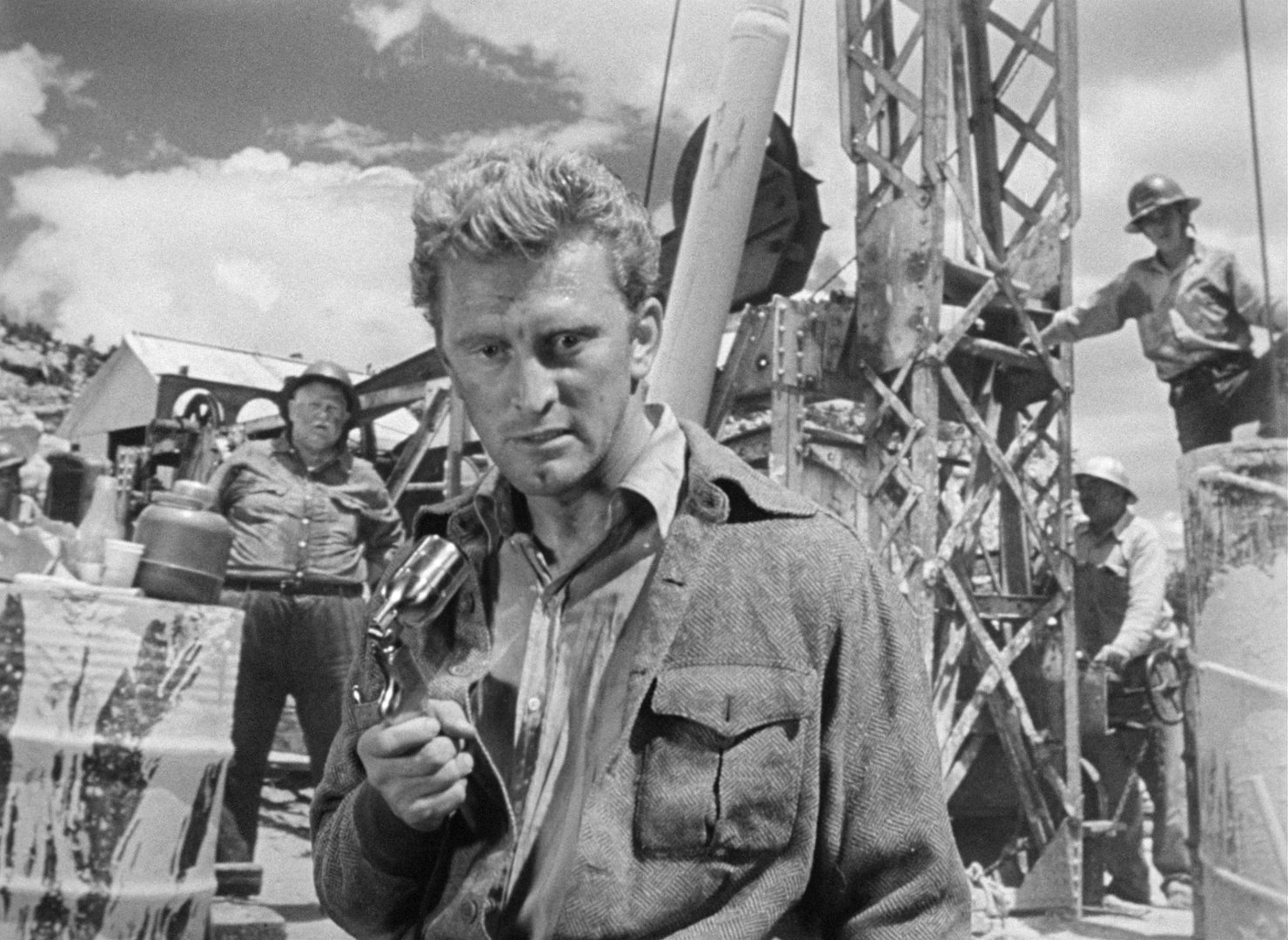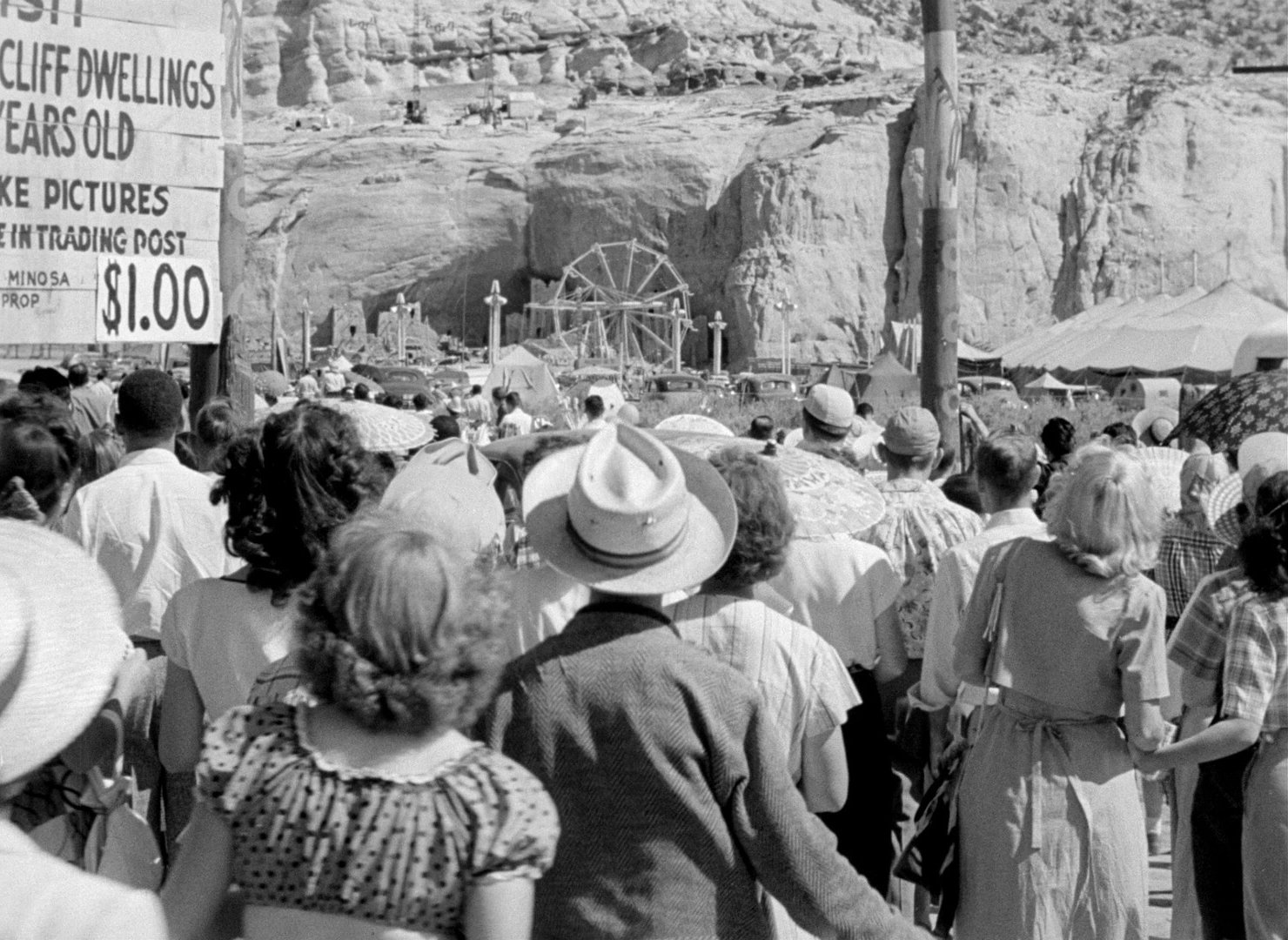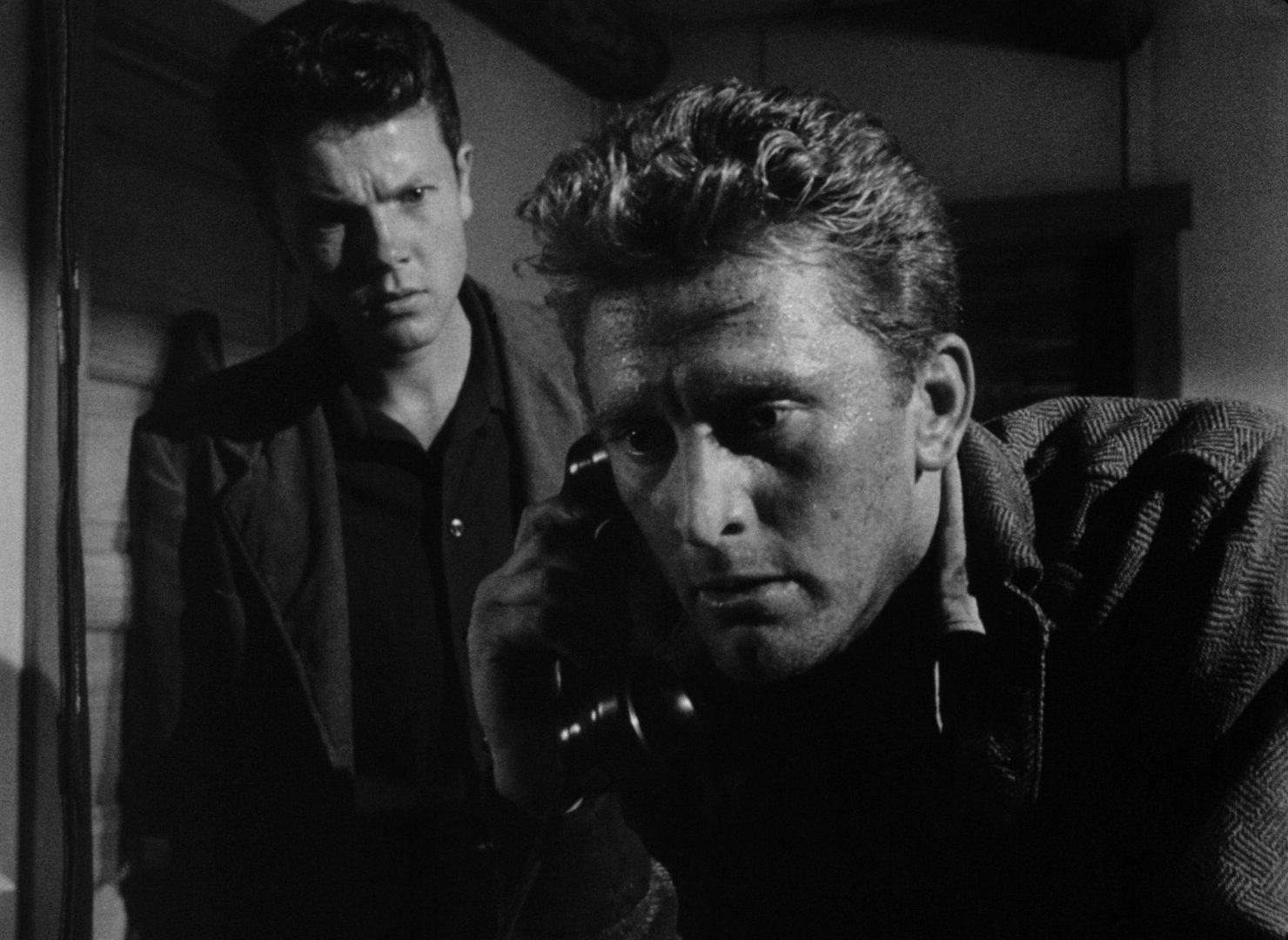Ace in the Hole (1951)
QFS No. 136 - The invitation for March 27, 2024
This is our second Quarantine Film Society selection by the great Billy Wilder, after having seen one of his earlier films The Lost Weekend (1947, QFS No. 84) a couple years ago. Ace in the Hole (1951) has been on my to-see list for some time, so I’m very much looking forward to it.
I was tempted to select a Wilder film I’ve already seen because they are so rewatchable. And I’ve managed to see a great deal of Wilder’s films - Some Like it Hot (1959), Sunset Boulevard (1950), The Apartment (1960), Double Indemnity (1944) are such terrific classics - but he made so many that there are a lot left for me to watch. He’s another one, like John Ford, with a very high batting percentage of great hits. I went with Ace in the Hole because, well, don’t we all want to bask in the glow of Kirk Douglas’ chin for nearly two hours?
Reactions and Analyses:
One of the most surprising aspects of Ace in the Hole (1951) is that it’s from 1951 and not 1971. There’s an expectation for many of the post-World War II American films, that they have a Capra-esque quality. A happy ending or at least one that’s, at best, ambiguous or a qualified victory for the protagonist.
A happy ending Ace in the Hole certainly does not have. One of our group members highlighted a shot at the end of the movie, where the crowds have recently left and all that remains is Leo’s father near a sign that reads “Proceeds go to Leo Minosa Rescue Fund.”
It’s a shot that speaks to the fickle nature of the crowd, the spectacle over, and all that remains is the detritus of the carnival and a family in ruin. Leo (Richard Benedict) has died. His wife Lorraine (Jan Sterling) has departed with the masses, just as she intended to early on before Tatum (Kirk Douglas) convinces her that her fortunes will change soon. And Tatum, having used Leo and keeping him trapped longer than necessary in order for him to reap the benefits of the sensational story going viral before “going viral” was a term, also dies. But not before a final act of almost valor.
The 1970s – coming on the heels of New Wave moments throughout Europe which in turn came on the heels of Post WWII neorealism – featured a generation of filmmakers who were raised by people who had witnessed the horrors of humanity and understood that real life had no clean happy endings. Obviously, this is an overgeneralization but the trends are clear to see from the films that came to life in this era in the second half of the 20th Century.
With its social commentary on human nature and their attraction to spectacle, the media’s role in fanning the flames of that human nature, and a non-Hollywood ending Ace in the Hole feels like an independent film from the 1970s and not a studio release from twenty years earlier. You can easily see a throughline between this and Network (1976), a film whose very essence is an analysis of media, entertainment and sensationalism. The cynicism in Ace in the Hole feels uncommon for the 1950s, with the Cold War in its infancy and the Allies victory in World War II fresh in people’s minds. The fact that it’s Billy Wilder and that the film is twenty years before its time, in some respect, is perhaps why I’m so drawn to it now and why it has been rediscovered as an overlooked classic of the time.
Tatum says early in the film, “You pick up the paper, you read about 84 men or 284, or a million men, like in a Chinese famine. You read it, but it doesn't say with you. One man's different, you want to know all about him. That's human interest.” Tatum, as an anti-hero, displays a deep understanding of that human nature throughout Ace in the Hole. Sheriff Kretzer (Ray Teal) hates him but Tatum turns him around and knows what the sheriff most wants – to be seen as powerful and important. Tatum tells Sherrif Kretzer how he will promote the sheriff as the man most determined to save Leo and in exchange Tatum gets exclusive access to the mine and the metaphoric gold inside. He convinces Lorraine to stay in town and play the grieving wife because it will make her a star and make all of them money. Tatum is a devious genius and he almost pulls it off.
“Almost” is the operative word. His gamble has proven too costly and Leo dies. And here’s one of our primary debates happened in our QFS discussion group. In the end, does Tatum feel guilty? Is that what drives him at the end? He’s clearly devastated by Leo’s death – but is it because it ruins his own chance at stardom and the heights of journalistic fame? Or is it because he’s come to terms with the fact that he’s Leo’s “murderer,” that he directly caused Leo’s death and consequently has a moment of clarity?
Several in the group believed that Tatum has no real remorse. Sure, he didn’t want Leo to die but he also knew that it meant the end of his own life. Others believed that he did in fact feel remorse and you can see it by his solitary act of bringing in the priest to comfort Leo for his final moments. Then, Tatum literally shouts from the mountaintop to tell everyone that Leo is dead and the carnival should go home. If he was truly in for all of this glory himself, he would’ve let Leo die quietly and had the “scoop” on Leo’s final minutes. (“Scoop” in quotes because Leo is the one creating this scoop.)
(Above sequence:) Tatum shouts from hilltop that Leo is dead. Is this the guilt-ridden face of a man full of remorse?
For me, personally, I think he did feel a measure of remorse and guilt but too little too late. And perhaps that’s why he doesn’t seek medical attention after Lorraine stabs him – he knows it’s his penance. He has to now suffer as he’s caused Leo’s suffering for his own gain. Perhaps explains why he accepts this pain without seeking amelioration or offering complaint, but it’s left (deliberately?) ambiguous.
People in our group brought up the cynicism but for me – and I said this early in our discussion – the film didn’t strike me that it was overtly cynical. And that probably says more about me or the time in which I live in now. For the 1950s, sure, the film is more cynical about human nature than popular culture portrayed. But we’ve now lived 75 years or so since then and seen the world revolve around capitalism, social media, hype, and the classically American propensity of squeezing money from every corner of human life. GoFundMe campaigns and “tribute” songs to raise money are the a logical extension of the funds to save Leo in the cave, the altruistic flipside of tragic spectacle.
And Leo – even the most “sympathetic” character in the film – is a grave robber of Native American artifacts! The person we’re cheering for to survive has, himself, stated that he’s probably cursed by the old spirits for robbing one too many times the burial sites of the indigenous of New Mexico. (Not to mention the studio so disliked the film that after its initial release they pulled it and remaned it “The Big Carnival” because people, you see, like carnivals so they might think it’s a fun movie! Talk about cynicism.) So it’s fair to say Ace in the Hole does have loads of cynicism – on screen and off – even though that’s not what first struck me.
The story is rife with plot holes as pointed out by the group, including the biggest one – why couldn’t Lorraine go down there to talk to Leo? It’s true – once Tatum goes down there frequently and it’s seemingly now safe to talk to Leo, then why can’t people who love him do that, like his parents? Also, is it believable that Tatum would suffer a stomach wound like that for so long? Only if he believes it’s a moral punishment.
And there’s this question – did Tatum ultimately win? He, too, is stuck in a hole – both he and Leo are in a hole together, one actual and one metaphoric. Both are counting on the other to extract them from their personal holes, but both die together. Tatum’s goal was to get back on top, become famous and return to New York. And while he doesn’t make it to New York and out of Albuquerque physically, he has become famous – people are cheering for him, the radio broadcast wants his exclusive thoughts. He is, for a moment, atop the world.
But it’s all fleeting, like the masses who come overnight and leave the next day as the tragedy ends. Ultimately, Tatum will become infamous and perhaps that’s victory enough – especially if you’re a cynic.



